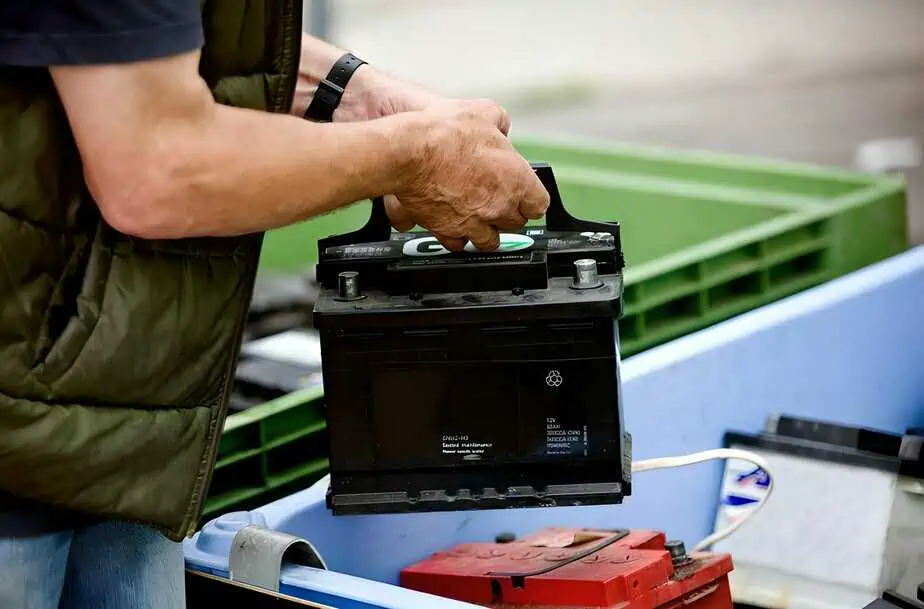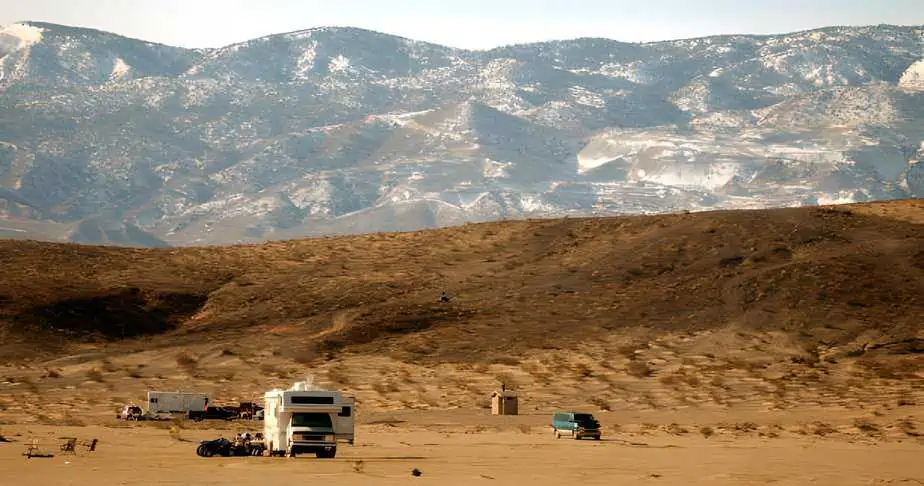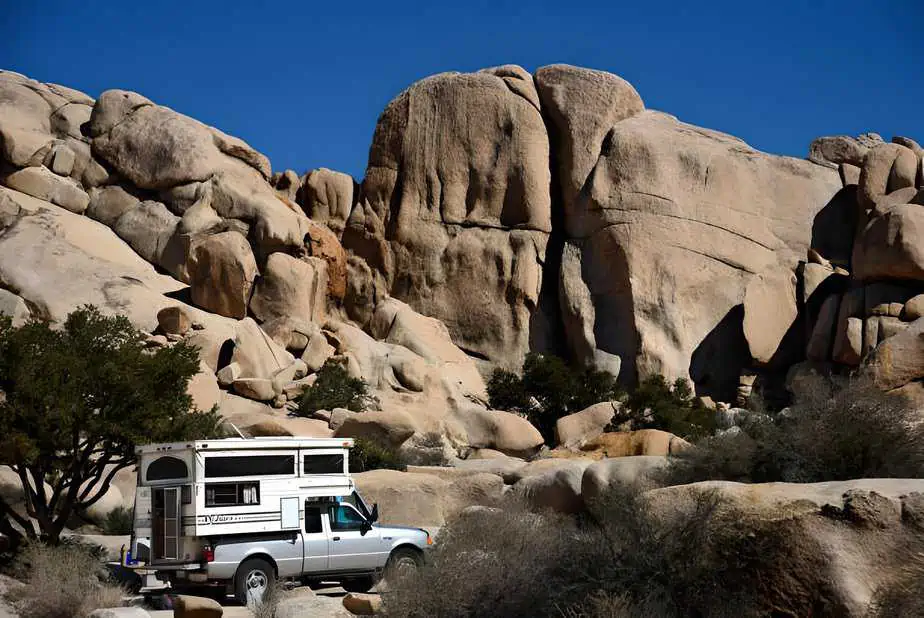Dry camping means having no fresh water, electricity, or sewer hookups. It can be done in an RV, van, or motorhome away from the normal campsites. This makes us wonder whether you can go dry camping without a generator.
Yes, you can go dry camping without a generator. Instead, you can use solar panels to power your batteries, so it is not necessary to have a generator for dry camping. However, you must familiarize yourself with the particular solar panel system and your electricity usage while dry camping.
Continue reading to learn more about dry camping!
Contents
Are Generators Needed for Dry Camping?
Although a power source is necessary for dry camping, people can easily use solar panels or propane instead of a generator. Batteries usually take between 2 to 6 days when dry camping. So, solar panels are better than propane. As they are environmentally friendlier and silent, you can play your part in preventing the planet from further harm.
Therefore, you should buy a solar panel suitcase or a potable power station. This will ensure that you only need a little space in your RV to settle the solar panels, so there is more room for other items.
Now, let’s find out how long batteries last while dry camping.
How Long Do Batteries Last?

You can often camp for 2–7 days on batteries, depending on how much electricity you have and its usage. However, the lasting duration varies with different battery types. If your batteries do not work well and do not store a lot of energy, you will be unable to camp for long.
Lithium batteries are the most common because they last longer and help prevent mishaps during your journey.
Next, let’s discuss dry camping and generators in greater detail!
Guidelines For Buying a Generator
Generators come in numerous shapes and sizes. Even though dry camping can easily be done using alternative power sources, it is vital to know what to look for when buying a generator in case other options do not work. Below are a few essential generator features:
Output
When dry camping, everyone’s electricity needs vary. A smaller generator may be more efficient if you only power small appliances, including phones and computers. Thus, buying a smaller generator will be more budget-friendly.
However, if you are going dry camping for longer, you will need to power more appliances frequently. Here, a “recreational camping generator” will be more useful. To find the right-sized generator, combine the starting watts of all appliances that need power, and select a generator that provides the total.
Remember to buy a generator that is at least 20 percent greater than the wattage total you have calculated. Your generator will get overheated when run at full capacity at all times, and this prevents that.
Sometimes, you may wish to look for a built-in generator for your RV. This will be more efficient in providing constant power at all times.
Noise and Silence
If your generator continuously makes a loud noise, you will tend to irritate the people around you. There are two main types of generators: inverter-type generators and contractor-type generators.
Inverter-type generators are quiet and enclosed. They make no noise because they do not have internal combustion. This makes them more like battery packs instead of standard noise-making generators.
Contrastingly, contractor-type generators and not enclosed and so they make more noise.
Fuel
Gasoline, propane, or solar electricity are all options for camping generators. Check the cost and availability of gasoline in your location before choosing between them to find which option makes the most sense.
As long as you have adequate fuel, gasoline/propane generators provide additional power and allow you to avoid waiting for a recharge. However, gas-powered generators are becoming less appealing for camping due to increased fuel expenses, noisy engine sound, and pollution.
The other choices are portable power stations or solar camping generators. They are lightweight and silent. Also, they do not emit any combustion emissions, so you may even use them inside your RV. However, these do not generate as much electricity as gas generators and are not as strong.
Considering the above factors, inverter generators are more efficient for dry camping. Having discussed which generators make a better choice, let’s delve deeper into the basics of dry camping requirements to ensure your enjoyable experience.
Dry Camping Requirements
Before you go dry camping, you must ensure that you are fully equipped to stay in remote areas for a long time. The following can help you prepare for dry camping.
An RV
When dry camping, your RV or van is everything. It must be in perfect functional order because it is your means of transportation and your home. Therefore, you must thoroughly service your vehicle before taking it on the road to ensure you face no setbacks.
Water
To drink, cook, and shower, we require water. When dry camping in remote areas, it becomes necessary to break camp to find additional freshwater. To prevent this, you must have many backups as your water sources.
Dry campers must maintain a water filter pump or straw in addition to fresh water by the jug and water purification tablets. Large freshwater storage tanks are then essential. Anything less than 60 gallons would be too little for a dry camping couple.
Gray Tank Capacity
Gray water is the used shower and sink water that has been wasted. Your gray water tank will fill up more quickly as you use more water for showers, teeth brushing, hand washing, and dishwashing. Gray tank conservation is as crucial as freshwater conservation.
Your RV’s handbook will also have information on the gray tank’s capacity. Remember that the gray tank is usually smaller than the freshwater tank, so you must be careful.
Emergency Equipment
Since dry camping takes you away from civilization and into remote areas, it is essential to travel with an emergency supplies tool kit. This must include a flashlight, extra batteries, a first-aid box, and fire starters.
Final Takeaway
From the information mentioned above, it can be concluded that although we must have a power source while dry camping, we can easily use sources other than generators. However, other valuable guidelines must be followed carefully, including thoroughly checking your RV, gray tank, and water tank.
